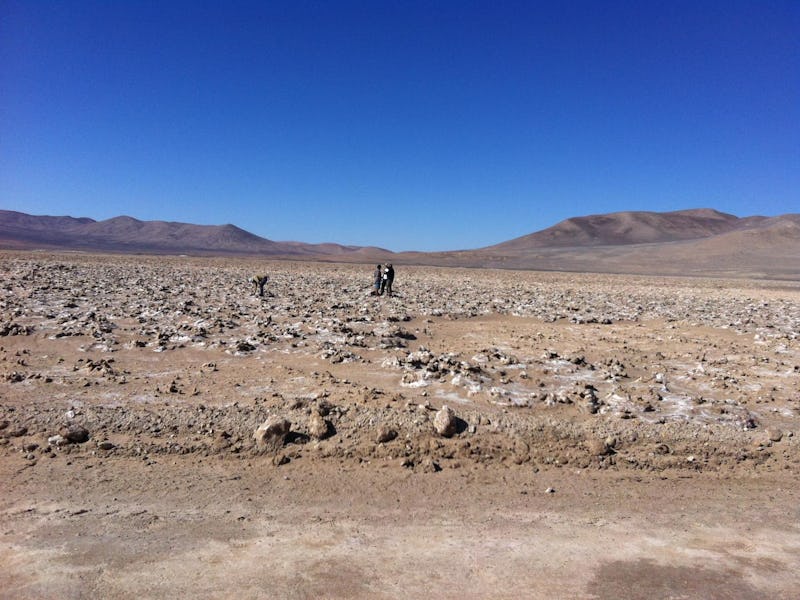As usual, Jurassic Park-era Jeff Goldblum was right: life can endure the driest conditions on Earth, which means it could find a way to exist within the arid soil on Mars. A planetary scientist tells Inverse Dr. Ian Malcolm’s reasoning is sound.
A new study published Monday in the Proceedings of the National Academy of Sciences (PNAS) finds that microbes have adapted to survive in South America’s Atacama Desert, the driest stretch of land on Earth. Despite very little water, bacteria in the Atacama soil could exist by going dormant — sometimes for decades — and “waking up” during rare rainstorms.
The researchers first visited the desert back in 2015 during one of those atypical showers. Using sterilized spoons, the team collected soil samples and analyzed the bacterial communities within. They found that, surprisingly, the microbes were reproducing like crazy.
Here’s where things took a turn: Upon returning in 2016 and 2017, the team found that the microbes were becoming dormant as the soil dried up. This adaptive behavior, which allows microbes to survive in some of the harshest conditions on Earth, could clue scientists into how hypothetical Martian microbes could endure.
“Finding indigenous life [in the Atacama Desert] expands the idea that on Earth, anywhere there’s water there’s life,” Tanya Harrison, Director of Research at Arizona State University’s Space Technology and Science Initiative, tells Inverse. “Mars has possible transient ‘wet’ events happening on the surface today like recurring slope lineae and gully activity. Perhaps those events are able to provide enough water for microorganisms akin to those discovered in the Atacama to survive.”
The researchers at work in the Atacama Desert.
Although Mars is even more cold and dry than the Atacama, it’s not impossible that tiny life is sneaking around in its soil. After all, the red planet has frozen water its its soil and even snowfalls, which might quench microbe’s occasional thirst just enough.
There’s a hell of a lot more research to be done, but this is certainly an exciting step toward validating our non-loneliness in the university.
“It has always fascinated me to go to the places where people don’t think anything could possibly survive and discover that life has somehow found a way to make it work,” the study’s lead author, Washington State University planetary scientist Dirk Schulze-Makuch, says in a statement. “Jurassic Park references aside, our research tell us that if life can persist in Earth’s driest environment there is a good chance it could be hanging in there on Mars in a similar fashion.”
